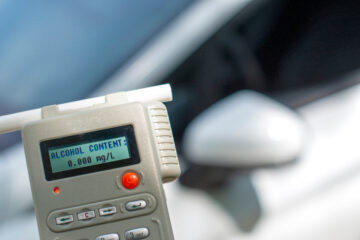Everyone has heard of the term “habitual offender”, and while everyone generally knows that a habitual offender is one that is constantly breaking the law, not everyone is aware that habitual offender laws change from state to state. In New Hampshire, a “habitual offender” does not actually apply to a career criminal, but instead only applies to driving.

What constitutes a habitual offender?
It’s important to know that if you are labeled a “habitual offender” by the DMV, it is not necessarily a crime, and you have not been charged with a crime. Habitual offender status is merely something that states you have a very bad driving record. Here is a list of what can cause a habitual offender status from the NH Department of Safety:
- Any combination of 12 convictions for speed, yellow line, operating without a license or operating without proof of financial responsibility, or
- Three (3) major convictions (see below), or
- One (1) major conviction and any combination of 8 of the convictions shown in item 1 above, or
- Two (2) major convictions and any combination of 4 of the convictions shown in item 1 above, and
- These convictions are based upon the date of the underlining violations and have all occurred within a five (5) year period.
Most commonly, a habitual offender status will be placed on someone who has been charged with three or more major vehicular violations within a five year period (rolling year period, not calendar year). These are usually suspended license charges, DWI charges, or reckless driving charges.
The most common major violations are:
- Driving while Intoxicated (any such offense)
- Reckless Driving
- Leaving the Scene of (Conduct After) an Accident
- Operating after Revocation or Suspension
- Taking a Vehicle without Authority
- Disobeying a Police Officer
- Unlawfully Passing a School Bus
A computer program flags driver records, then a state trooper will deliver a notice of hearing to the person whose record was flagged.
What is a habitual offender hearing?
After a person’s record is flagged by the DMV, they are then subject to a hearing conducted by a hearings officer. The officer will review the flagged record, and will then decide whether or not the record constitutes the label “habitual offender”. As long as the standard for a habitual offender is met by the record, the officer will need to pass the record as being labeled as a habitual offender.
What can I do?
There is really only one method that can reverse a habitual offender label. Reporting a violation or conviction as being reported incorrectly to the DMV, or challenging a conviction to get it thrown out can be a way to remain free of a habitual offender status. Challenging a conviction relies on a sympathetic ear to reverse a conviction.
What happens then?
If you are labeled a habitual offender, your license is automatically revoked. Continuing to drive while in a habitual offender status in NH is considered a felony. From there, you will be told how long you will be considered a habitual offender and you will lose your license for a maximum of four years. Sometimes the time starts at the time of your hearing, the date of your last conviction, or some other time determined by the officer. If your last conviction was months or even years ago, sometimes it can be asked that the officer begin the habitual offender start date at the date of the last conviction (backdate it), helping to cut down on the amount of time certified as a habitual offender.
Once my time is up, I can get my license back, right?
You don’t automatically get your license reinstated once your time has elapsed being a habitual offender in NH. In fact, you have to petition the DMV to decertify you as a habitual offender by filling out a form. The DMV may also tell you during your original hearing how they want you to proceed, which can be having you take a defensive driving course or a substance abuse course. You may also have additional charges that need to be served consecutively (especially in the case of a DWI), depending on what kind of convictions you have.
How can an attorney help?
Attorneys like Bernstein & Mello can assist you in helping argue against certification, arguing for a lesser period of certification, or helping to attempt to have prior convictions vacated. We understand that having your license revoked for a period of years can be difficult in NH given the lack of available public transportation here in the state.
If you have habitual offender questions, we can help. Contact Bernstein & Mello today.


